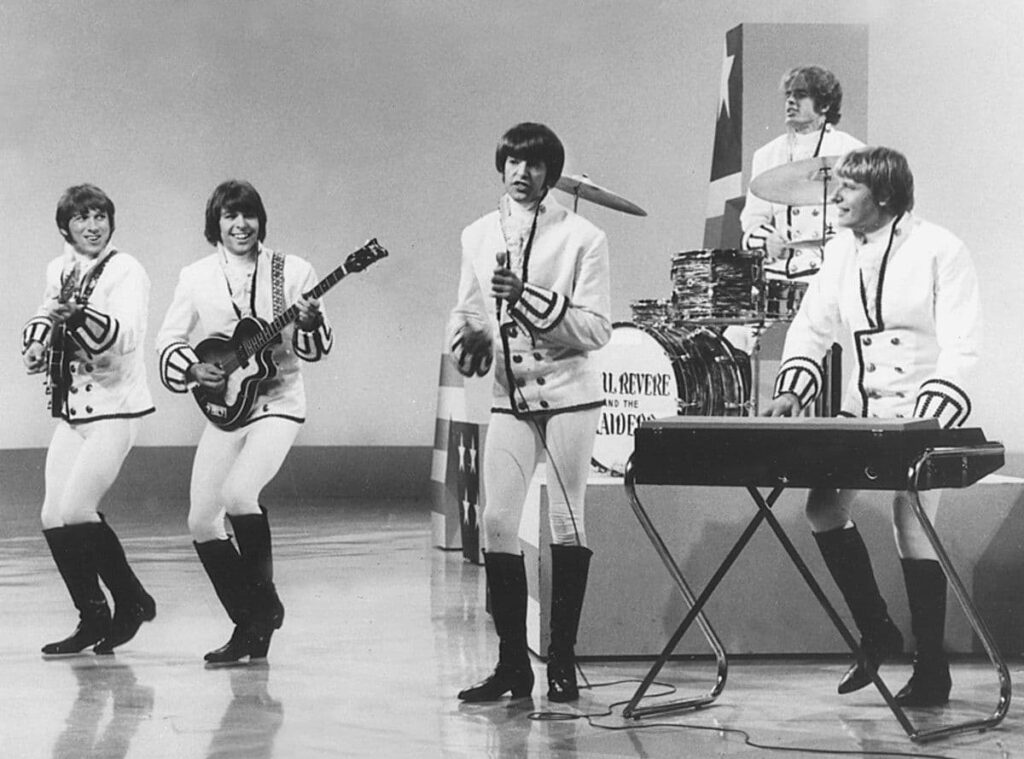
A Teenager’s Lament: The Bitter Taste of Unrequited Love and Parental Meddling
In the vast and often turbulent landscape of 1960s rock and roll, where youthful exuberance met a burgeoning sense of rebellion, a song emerged that, while not a chart-topping behemoth, resonated with a bittersweet honesty that’s still palpable today. It’s a track that captures a specific moment in time—the frustrating, often-confusing crossroads of teenage romance and the meddling, well-intentioned (or so they thought) adults who stood in the way. I’m talking, of course, about Paul Revere & The Raiders‘ “Louie, Go Home.”
This isn’t the Raiders‘ more famous “Louie Louie,” a track that has since become an anthem of garage rock, but rather a direct response, a sequel of sorts, to that chaotic classic. While “Louie Louie” was a raucous, almost primal expression of youthful abandon, “Louie, Go Home” feels like the morning after—a slightly bruised, more reflective, and ultimately more melancholy affair. Released in late 1964, the song, which appeared on their album Here They Come!, paints a vivid picture of a young man caught in a dilemma. The narrator is deeply in love, but his affection is unrequited, or perhaps more accurately, unaccepted. His rival, the titular Louie, is a fixture, a nuisance that he can’t seem to shake. The lyrics, penned by Paul Revere and Mark Lindsay, are simple but effective, painting a scene that many of us, looking back, can instantly recognize: a house full of people, a young girl whose heart is elsewhere, and the awkward tension of a love triangle playing out in a suburban living room.
What truly elevates “Louie, Go Home” beyond a simple teenage complaint is the layer of parental interference that the song so expertly weaves in. The line “The girl’s father says, ‘Louie, go home!'” isn’t just a command; it’s a statement of authority, a declaration that this isn’t just about two boys vying for a girl’s attention. This is about the world of adults imposing their will on the world of teenagers. It’s a moment that resonates with a certain kind of ache—the feeling of being powerless in a situation where the rules are set by someone else. The song’s arrangement reflects this perfectly. The driving, almost frantic rhythm of the verses gives way to a more melancholic, almost resigned chorus. Mark Lindsay’s vocal performance is particularly noteworthy here. His voice carries a weight of youthful frustration and genuine hurt, a vulnerability that makes the song incredibly relatable even decades later. It’s not just anger; it’s a profound sense of sadness that a love he so desperately wants is being denied, not just by the girl, but by the circumstances and the adults around them.
“Louie, Go Home” is a fascinating time capsule of the pre-British Invasion rock and roll scene, a testament to the raw, unpolished energy that was bubbling up from garages and local dance halls across America. It’s a song that speaks to the universal experience of growing up—of navigating the choppy waters of first loves, first heartbreaks, and the frustrating realization that sometimes, even if you’re right, you can’t always win. It’s a reminder of a simpler, yet no less emotionally complex, time. For those of us who came of age in the ’60s, or even those who just appreciate the era’s music, this isn’t just a song; it’s a memory. It’s the sound of a generation trying to find its voice, even when that voice was telling a story of a love that just couldn’t be.